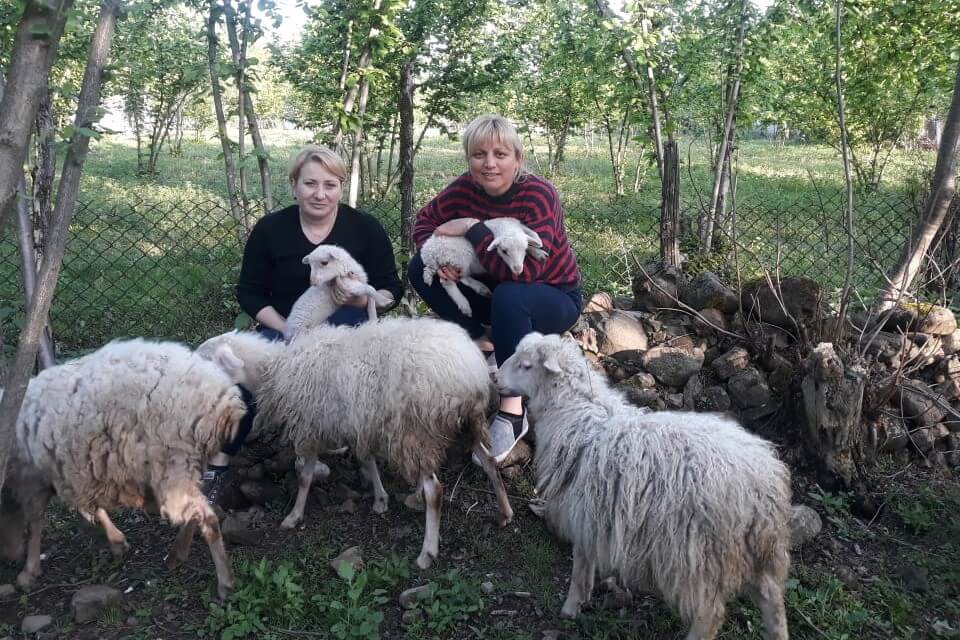The Power of Women's Unity
Date:

“At first, everyone looked at us sceptically. Women here have never had sheep before, but we turned our idea into reality. It was actually much easier than we had expected,” Maka Kvaratskhelia recalled when she and her friend, Tea Tsanava, decided to raise money and start an unusual business - raising sheep.
Maka and Tea, both 42 years old, live in Tsalenjikha (Samegrelo region), in the village of Jgali. The two friends were inspired to start some kind of income-generating business after joining a social mobilization initiative of UN Women and the TASO Foundation. At first, they underwent trainings, acquired the skills and knowledge necessary to start a business, and took advantage of grant opportunities. They then took the first step towards their goal and bought eight sheep a year ago.
“Now we have 14 sheep,” Tea explained. “We do everything ourselves; we even gather hay with our own hands. We are fond of such work. In June, we are expecting an increase in our litter - three additional lambs. And already by this fall, we will receive our first income, which will allow us to further expand our business.”
Aimed at empowering rural women and their communities, the social mobilization component of the project “A Joint Action for Women’s Economic Empowerment in Georgia” (JAWE) was launched by UN Women and the TASO Foundation in 2017. The initiative was implemented in four regions: Samegrelo, Guria, Imereti, and Racha-Lechkhumi and Kvemo Svaneti.
The initiative encouraged numerous women throughout the target regions to start their own businesses and get involved in civic activism, just like Maka and Tea. Alongside their profitable business, Maka is a community worker for the TASO Foundation, and Tea is a member of a self-help group.
“Twenty of us women went to the first meeting and formed two self-help groups,” recalled Maka. “It was a continuous process of teaching - but fascinating at the same time. By and by, it became clear that we had road and bridge problems in the community; even the school transport could not reach the students. So we presented this issue to the local self-government and managed to get a road built. We know that any problem faced by the village is a personal problem, and we too have to look for solutions.”
As part of the social mobilization component, 52 self-help groups were set up across the country with a total of 424 participating women, 110 of whom also received small grants and started various activities - from producing honey and making toys to sewing and baking. At the same time, women in self-help groups have solved many community issues through their own initiatives, improving their living conditions and changing the lives of hundreds of families. In this way, they have shown that women’s unity has great power indeed.
Today, in the villages where social mobilization has taken place, a fresh wave of life can be felt, and the members of the community now have a higher sense of motivation and solidarity. The small businesses launched within the framework of this initiative have provided a source of income for other local women too.
The social mobilization component of the JAWE project was implemented with the support of the Government of Norway. The project is over, but the participating women are even now taking steps towards change on a daily basis, including Maka and Tea, who, along with the expansion of their own careers, have another desire: to provide the local population with employment opportunities in their own villages and to bring back the former joy and liveliness to the abandoned, empty houses.